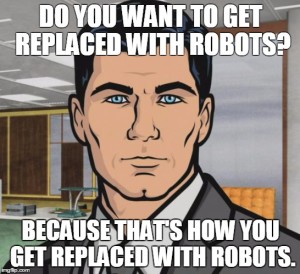Happy Monday, dear readers!
Are you gearing up for the Big Turkey day feast? Well, while you’re dreaming of mashed potatoes and gravy, allow your humble blogger to whet your appetite with this humblest of posts.
Applicant Soto, a Richmond Police Officer, sustained an injury while riding his dirt bike. Officer Soto, just by coincidence, is on the actual dirk bike unit of the Richmond PD. So, when he filed a claim, the City denied it on the basis that recreational dirt-bike riding falls outside the scope of employment, to which applicant responded that off-duty practice in furtherance of on-duty capacity is within the scope of employment…
Applicant and his fellow dirt-bike-crime-fighters testified that regular bike riding helped them keep their skills sharp and their abilities decent.
The matter proceeded to trial, and the WCJ applied a two-pronged test: did applicant subjectively believe that he needed to engage in off-duty dirt-biking; and, was this subjective belief objectively reasonable?
The answer to both of these was found in the affirmative by the WCJ, and the WCAB adopted and incorporated the WCJ’s opinions into its decision.
So, the question always falls to what was reasonably expected as part of the job duties. We saw this issue come up in the Simon panel decision, where an off-duty police officer slipped while hiking. There, the WCAB held that the claim was not compensable because the employer had provided a list of activities which were approved of, and that particular trail where Mr. Simon was injured was not part of this plan.
Based on the information relayed in the panel opinion in Soto, after the first two weeks on the dirt-bike unit, the police officers were pretty much left on their own. Perhaps what may have benefited the City of Richmond would have been a detailed plan of exactly how the dirt-bike unit is to keep its skills on point.
Now, dear readers, your humble blogger has been watching and re-watching Mad Men, hoping against hope that therein lies the answer of how to tie drinking scotch into the reasonable duties of your humble blogger’s field of practice. Any suggestions?


